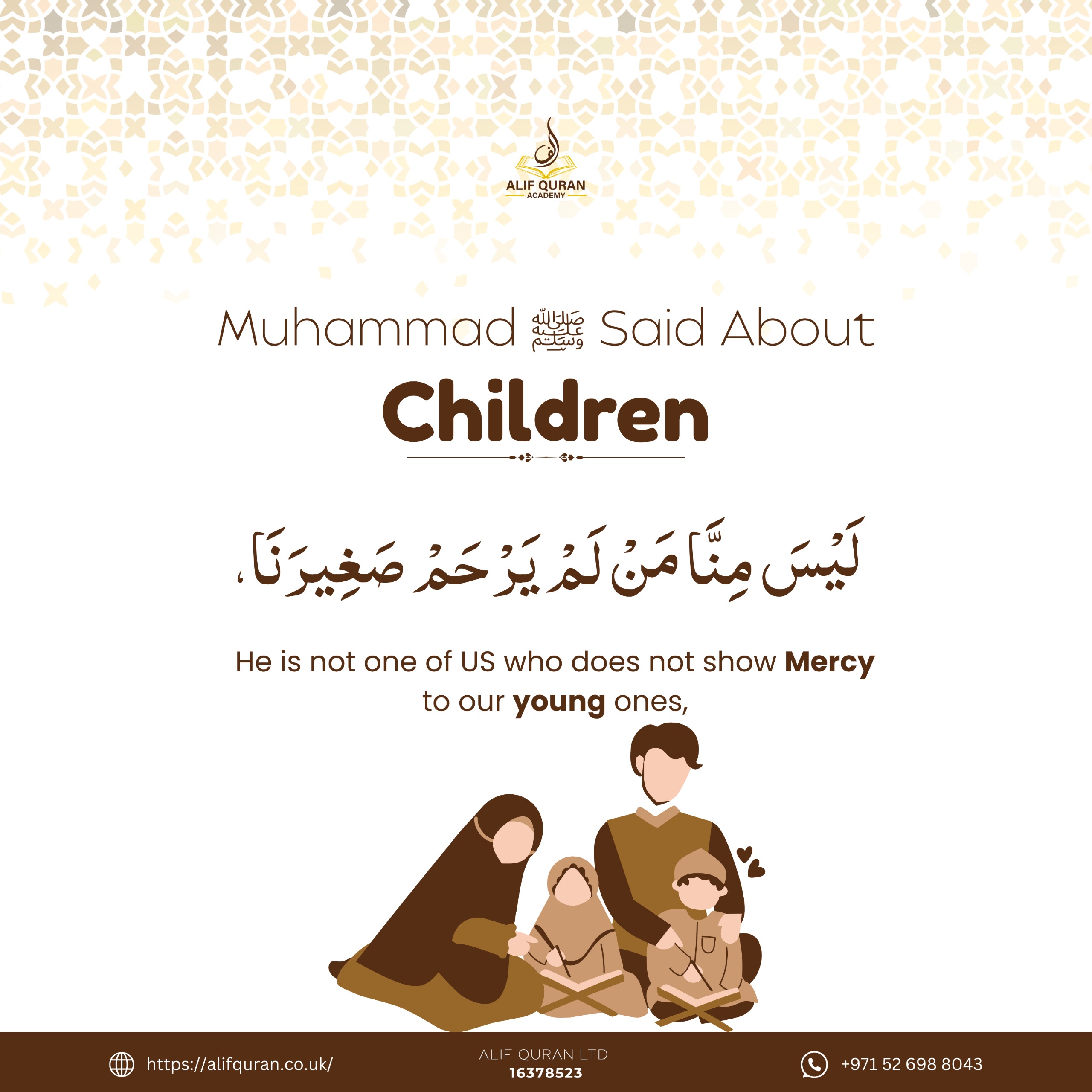What Prophet Muhammad Said About Children
Compassionate Guidance from the Final Messenger on Nurturing, Educating, and Respecting the Young
In a world where children's rights and well-being are increasingly recognized, Islamic teachings offer profound wisdom that predates modern conventions by over fourteen centuries. Prophet Muhammad (peace be upon him) placed extraordinary emphasis on the treatment, education, and rights of children, establishing principles that continue to guide Muslim families worldwide.
The Foundation of Mercy and Compassion
This profound hadith establishes mercy as the cornerstone of Islamic child-rearing. The Prophet PBUH didn't merely suggest kindness to children - he made it a defining characteristic of Muslim identity. To withhold compassion from the young was, in his teaching, to remove oneself from the community of believers.
Prophet Muhammad's PBUH approach to children was revolutionary in 7th-century Arabia, where infanticide (particularly of girls) was practiced and children had limited rights. He transformed societal attitudes, elevating children to a position of honor and protection within the family and community.

Key Teachings on Children
Throughout his life, the Prophet demonstrated and articulated principles for raising and treating children with dignity:
Equal Love for Boys and Girls
The Prophet PBUH challenged the pre-Islamic preference for male children. He famously kissed his grandson Hasan while a companion watched. When the companion expressed surprise, Muhammad PBUH responded: "What can I do if Allah has deprived your heart of mercy?" (Bukhari).
Education as a Fundamental Right
"Seeking knowledge is obligatory upon every Muslim" (Ibn Majah). The Prophet established education as a right for all children regardless of gender. He created the Suffa platform in his mosque specifically for young learners.
Physical Affection
Contrary to cultural norms of his time, Muhammad PBUH openly showed affection to children. Anas ibn Malik reported: "I never saw anyone more kind to children than Allah's Messenger" (Muslim). He would carry children, kiss them, and let them ride on his back during prayer.
Children's Rights in Islam
Prophet Muhammad established comprehensive rights for children that modern conventions would later echo:
1. The Right to Life and Protection
The Quran strongly condemns pre-Islamic infanticide: "Do not kill your children for fear of poverty. We provide for them and for you. Indeed, their killing is ever a great sin" (17:31). The Prophet PBUH extended this protection to include emotional safety and security.
2. The Right to Identity
Muhammad PBUH instructed parents to choose good names for their children, calling it the first gift from parent to child. He often changed derogatory names to positive ones, understanding how identity shapes self-worth.
3. The Right to Play
Contrary to views that consider play frivolous, the Prophet PBUH recognized its developmental importance. He allowed his wife Aisha to watch Ethiopian playing in the mosque and would pause sermons when he heard a child crying.
"Be fair to your children in gifts. If I were to favor anyone, I would have favored women."
Practical Guidance for Parents
The Prophet's teachings offer timeless parenting advice:
Lead by Example
Muhammad PBUH taught that children learn more from observation than instruction. His famous saying, "Every child is born in a state of fitrah (natural belief in God)..." (Bukhari) reminds parents they shape children's spiritual development through their own behavior.
Age-Appropriate Religious Practice
The Prophet advised: "Command your children to pray when they become seven years old, and discipline them for it when they become ten years old..." (Abu Dawud). This gradual approach respects children's developmental stages.
Positive Discipline
While allowing reasonable correction, Muhammad PBUH prohibited harsh punishment: "Do not strike them and do not revile them" (Muslim). He emphasized explaining wrongs rather than merely punishing them.
Special Considerations for Orphans
Having been orphaned himself, Muhammad PBUH showed particular concern for parentless children. He declared: "I and the caretaker of the orphan will be in Paradise like this," holding two fingers close together (Bukhari). He taught that caring for orphans brings one closer to the Prophet in Paradise.
Modern Relevance of Prophetic Teachings
In today's complex world, the Prophet's guidance remains profoundly relevant. His emphasis on mercy counters harsh parenting trends. His insistence on education for all children, regardless of gender, preceded global education movements by centuries. His recognition of play as essential development foreshadowed child psychology research.
Contemporary research validates many Prophetic practices: physical affection promotes secure attachment; respecting children's voices builds self-esteem; gradual religious education aligns with cognitive development theories. Modern neuroscience confirms that the loving environment Muhammad PBUH advocated for children creates optimal conditions for brain development.
Conclusion: A Timeless Model
Prophet Muhammad PBUH established a comprehensive framework for child welfare that balances rights with responsibilities, affection with discipline, and individuality with communal belonging. His teachings transcend time and culture, offering guidance that resonates with contemporary understandings of child development while remaining rooted in divine wisdom.
By showing mercy to the young, respecting their dignity, and nurturing their potential, Muslims fulfill the Prophetic mandate to create generations that carry forward the best of human values. As the Prophet taught through word and deed, how we treat our children ultimately reflects our relationship with the Divine Mercy that sustains all creation.



